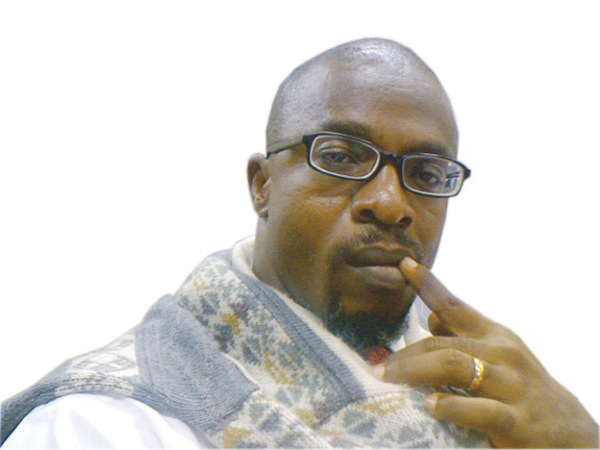Two developments, last week, underscored the problem with our tentative acceptance of democracy. Both events would have been extremely risible, were their implications and consequences not so far-reaching, and they themselves not so thornily coupled with our prospects of succeeding as a modern economy. On matters of democratic form, Mr Mohammed Umar Bago, as governor of Niger State, to all intents and purposes, appeared in a televised address to ban certain hairstyles in Minna, the state capital. It was, he suggested, one outcome of the state’s zero tolerance for “rascality”. Other aspects were no less severe, including demolishing residences whose occupants run foul of the law. Given the impact of the governor’s “ruling” on the rights of citizens resident in the state (law enforcement agencies were to apprehend citizens sporting such hairstyles and forcibly “barb” them on the spot), and its clear violation of the rights of non-resident Nigerians transiting through the capital, questions arose as to the legality of the governor’s pronouncement. Given how litigious Nigerians are the governor was always going to have his day in court. But ahead of a definitive ruling by the Supreme Court, many Nigerian males would have been traumatised.
Mr Bago subsequently reversed himself. Indeed, despite viral video evidence, he offered an alternate “truth”: “media propaganda” had whipped up a storm in a teacup, when, indeed, Niger State remained open for business. The chance to have had the courts rule on the extent to which the executive arm of government at any level may gratuitously limit the rights of the Nigerian people vanished momentarily. But not this question: “On what basis did the Niger State government reach the conclusion that the incidence of ‘rascality’ rises the more citizens wear their hair in locks?” Clearly not because Jamaica – and much of the West Indies – is a rascally place. Or because dreadlocks are alien to Nigerian “culture”. Nor because there are randomised controlled trials that prove that persons who matt, braid, or twist their hair are more prone to antisocial behaviour.
Yet, an answer to this question matters. Without one, nothing is to stop the next executive (state or sub national) from deciding that male tattoos evidence association with Mara Salvatrucha and then organising the rendition of all tattooed Nigerian males to Nayib Armando Bukele Ortez’s sovereign gulag. In a democracy the rights of the individual matters most. Indeed, the insistence that the regular vote, one of democracy’s most important rite and ritual, should be free and fair presumes the multiplicity of opinions and forms of expression and associations around them. A democracy thrives, then, on differences. In other words, in a democracy, the majority may not like the dress, religion, or hairstyles of a minority. But to persuade the state to forbid any of that, the majority – or its representatives – must, at the very least, prove that (and how) these practices cause them harm.
Yet, phrased differently, in a multi-everything society such as ours, the requirement not to occasion harm is but a negative one. Far more important for the enrichment of society and its long-term sustainability is the promotion of the diversity of all its pools – gene, cultural, social, intellectual, etc. Intellectual incest and inbreeding have equally severe consequences for society’s wellbeing. On this reading, the state has only one business, and one business only. And this is to promote and enforce rules and regulations that prevent exploitative relationships between its citizens. Otherwise, the state has no business.
Sadly, it was not only Mr. Bago’s decision and his subsequent reversal of it that demonstrated, last week, that democracy (presidential or parliamentary) is not the hindrance to national progress that our talking heads and the echo chambers associated with them often make it out to be. On matters of democracy’s functioning, the decision by leading lights of the Peoples Democratic Party (PDP) – especially elected officials of the state – to migrate en masse to the All Progressives Congress Party (APC) showed that Nigeria’s main let to development is the narrowness of our leaders’ minds. Over the coming days, speculation as to the cause of this lemming-like conduct will be rife – and, in the end, pointless. But questions such as these will remain: If democracy thrives on differences and their ventilation, why do leaders of our democracy prefer herds? The lack of differences – organisational, ideological, etc. – between our political parties have been decried over the years. Years in the making, our political parties have been unable (unwilling, maybe?) to shed their resemblance to so many digits of the same leprotic limb.
The one answer that lends all of these happenings some meaning is if we are able to respond with a “Yes” to the question: “Have we, as a political space managed to alter the professed purpose of leadership?”. A negative answer invites a final question: “How does the gathering of our entire political class in one political vehicle, all headed rapidly down the same seemingly blind alley make it possible to improve the lives of our people?”
Uddin Ifeanyi, journalist manqué and retired civil servant, can be reached @IfeanyiUddin.
Support PREMIUM TIMES’ journalism of integrity and credibility
At Premium Times, we firmly believe in the importance of high-quality journalism. Recognizing that not everyone can afford costly news subscriptions, we are dedicated to delivering meticulously researched, fact-checked news that remains freely accessible to all.
Whether you turn to Premium Times for daily updates, in-depth investigations into pressing national issues, or entertaining trending stories, we value your readership.
It’s essential to acknowledge that news production incurs expenses, and we take pride in never placing our stories behind a prohibitive paywall.
Would you consider supporting us with a modest contribution on a monthly basis to help maintain our commitment to free, accessible news?
TEXT AD: Call Willie – +2348098788999





